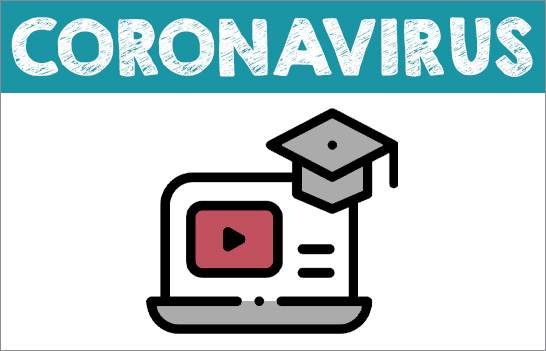The world is enduring adversity that has altered the ways in which businesses, organizations, individuals, education systems, and higher-level education institutions go about their daily processes and routines. The impact that the coronavirus (COVID-19) pandemic has had on colleges and universities, both nationally and internationally, is immense and unprecedented.
I am an undergraduate student in my senior year at James Madison University, experiencing the transition to remote and online learning. Despite being in the midst of a multitude of collegiate courses that require extensive work, research, group collaboration, meetings, and resources, I can say with confidence this shift to complete online learning is manageable.
Schools around the globe have begun the transition to remote and online learning in order to properly abide by the government rules and regulations regarding COVID-19. Faculty, staff, and students are working hard to navigate through the shift from in-class schooling to a virtual education.
Fortunately, despite the size of learning institutions, technology continues to expand and the advancements society has been able to cultivate is simply remarkable. The ways in which we learn, conduct meetings, work, and interview, can all be done virtually. There are many accessible online software and platforms that have made this change achievable for higher-level education systems, faculty, staff, and students. With access to online, user-friendly meeting sites like Zoom Video Communications, Skype, and Cisco WebEx, the transition to complete remote and online college classes mid-semester is attainable.
Most of my classes are now asynchronous which gives me and other students infinite access to necessary class resources, lectures, materials, and assignments with the expectation that tasks be completed by the assigned due date. While some of my courses have changed to this type of structure, others have maintained their synchronous status. These classes are utilizing Zoom Video Communications and Cisco WebEx to conduct lectures and my peers and I can actively participate during class, ask questions, offer insight, and take part in group discussions.
I am also enrolled in two capstone curriculums and these courses have presented me with the opportunity to work with external clients in the surrounding JMU community through a virtual setting. This ensures that our clients requests are being met, research is being properly conducted, and tasks are being accomplished by me and my peers. We have consistently utilized the available online software to communicate with one another, as well as our organizations, to guarantee successful work.
The implementation and modification of remote and online schooling, for educational institutions, has posed as an opportunity for teachers, professors, and students to enhance the way in which topics are taught and how students learn. These alternative and creative outlets offer individuals a chance to take part in learning programs and styles that have historically been unfamiliar. Narrowing in on ways to conduct classes and learn may unearth new methods and strategies that will benefit learning in the future. These creative outlets and adjustments to college classes and coursework can help ensure that remote and online schooling is compelling, attainable, intriguing, and successful for all taking part in the switch.
This period in time, while extremely difficult and sad, has allowed higher education to collaborate on alternative ways to conduct class gatherings, convey information, and accomplish required class assignments to guarantee all students continue to have a successful academic school year.
For more coronavirus resources, please visit our Coronavirus (COVID-19) Crisis & PR Resource Center.
